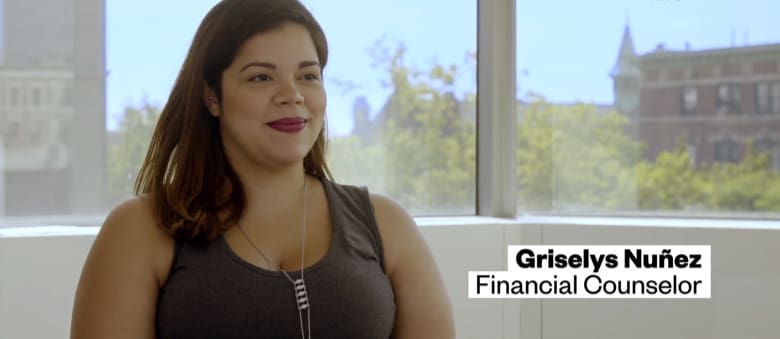
The Equifax data breach couldn’t have come during a more delicate time for our clients. As a Neighborhood Trust Financial Counselor, most of my clients are first generation immigrants. In many cases, they get their first glimpse of how the Financial System works in the United States through our services. Our clients are mostly women, many of them are parents, and on average our clients have subprime credit, thousands of dollars in debt and collections, little or no savings, and earn well below the median income. We help them establish or improve their credit, build savings and manage their cashflow, but nothing can prepare them for something as catastrophic as a data breach affecting as many as 146 million people.
Our clients have done their part in trying to establish and protect their identities. They are working hard to pay off debt, and they’ve opened accounts that will help them get acclimated to the financial system. How do I explain to them that a system that they never signed up for was hacked, and their identities might be at risk?
At a home health aid cooperative, an email was broadcast to inform employees about the Equifax breach, and directing them to me if they had questions or concerns. I’m glad I was on site that day, because within ten minutes, my clients started pouring in. With panic in their eyes, they would ask, “What does this mean? How do I know if I’m affected?”
I’ve been a Financial Counselor with Neighborhood Trust for four years, serving around 300 clients each year, and I can confidently provide guidance on almost any financial issue. My clients leave our sessions feeling more at peace and less stressed about their situations. Their circumstances haven’t changed, but now they have someone to give them advice, guide them through a process, or hold them accountable to the goals they’ve set for themselves and their families.
Since the Equifax breach, I have felt almost helpless. What does this mean? Well, it means that your information has been exposed – your social security number, your address, your date of birth, your account numbers…. How do I know if I’m affected? All you can do is monitor your report. Keep a lookout for changes or suspicious activity. Neighborhood Trust Financial Counselors have access to clients’ Transunion credit reports, but clients themselves need to be checking their reports from all three credit reporting agencies, which can be costly beyond a single legally mandated free annual report.
I worry that my clients didn’t leave the room feeling more at ease about the situation. In fact, by telling them to monitor their credit reports, maybe I planted more panic. They are constantly swimming against the current, whether it’s dodging costly financial institutions, resisting the temptation to overspend on their credit card, struggling to pay off high-interest debt, or simply trying to become a “good” resident of the US.
One of my clients is scheduled to file for bankruptcy this month. After the breach, she told me, “I trust banks as much as they’ll trust me after I file for bankruptcy, but my identity has been stolen before. It took the bank less than one day to reflect the transaction but over two months to resolve my dispute. I’m sure they doubted that I was telling them the truth, yet someone out there used my information to open an account with no hassle. I think I’m done with all of this.”
Already vulnerable, now our clients are exposed. I can tell them to monitor their credit for changes, but for how long? What if someone tampers their savings account? What if their credit cards get maxed out? What if, out of fear, they close their financial products and start saving at home? Or worse, don’t save at all? I’ve had to answer these questions occasionally in the past, but this breach might result in more setbacks than progress.
My work as a Financial Counselor is based on a foundation of honesty and empathy, a trusted relationship with clients who have plenty of reasons to be guarded and mistrustful. It’s my job to provide clarity, delivering focused, individualized, expert advice for navigating an often confusing financial industry that doesn’t always prioritize the best interests of low income people. I’ve spent hours, months, sometimes years building my clients’ confidence and participation in the formal financial system, and one breach could send my clients fleeing back into the informal economy. Low income people now need more support than ever navigating their financial lives, and I will continue to provide financial advice in their best interest as Neighborhood Trust has for twenty years, but will they trust us? I’ve never worried about my clients more.
Griselys Nuñez has been a Financial Counselor at Neighborhood Trust Financial Partners for more than four years. She is a project manager for our ground-breaking digital platform, Pathways to Financial Empowerment, which is a joint venture with the National Federation of Community Development Credit Unions, establishing data-driven best practices for financial counseling at credit unions in eleven states. In 2016, she was featured in a short educational video by Vice News, “How to Establish Credit,” as a part of their How to Be a Person series for young adults.




Follow Us